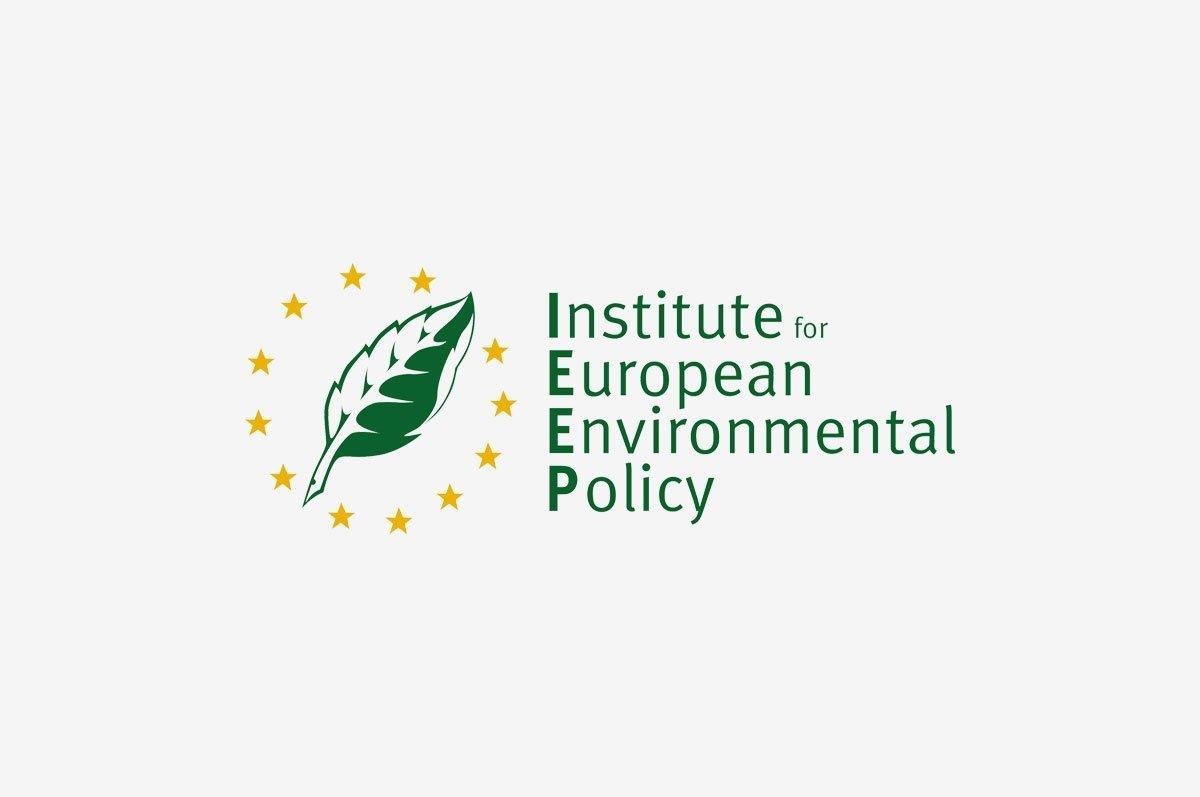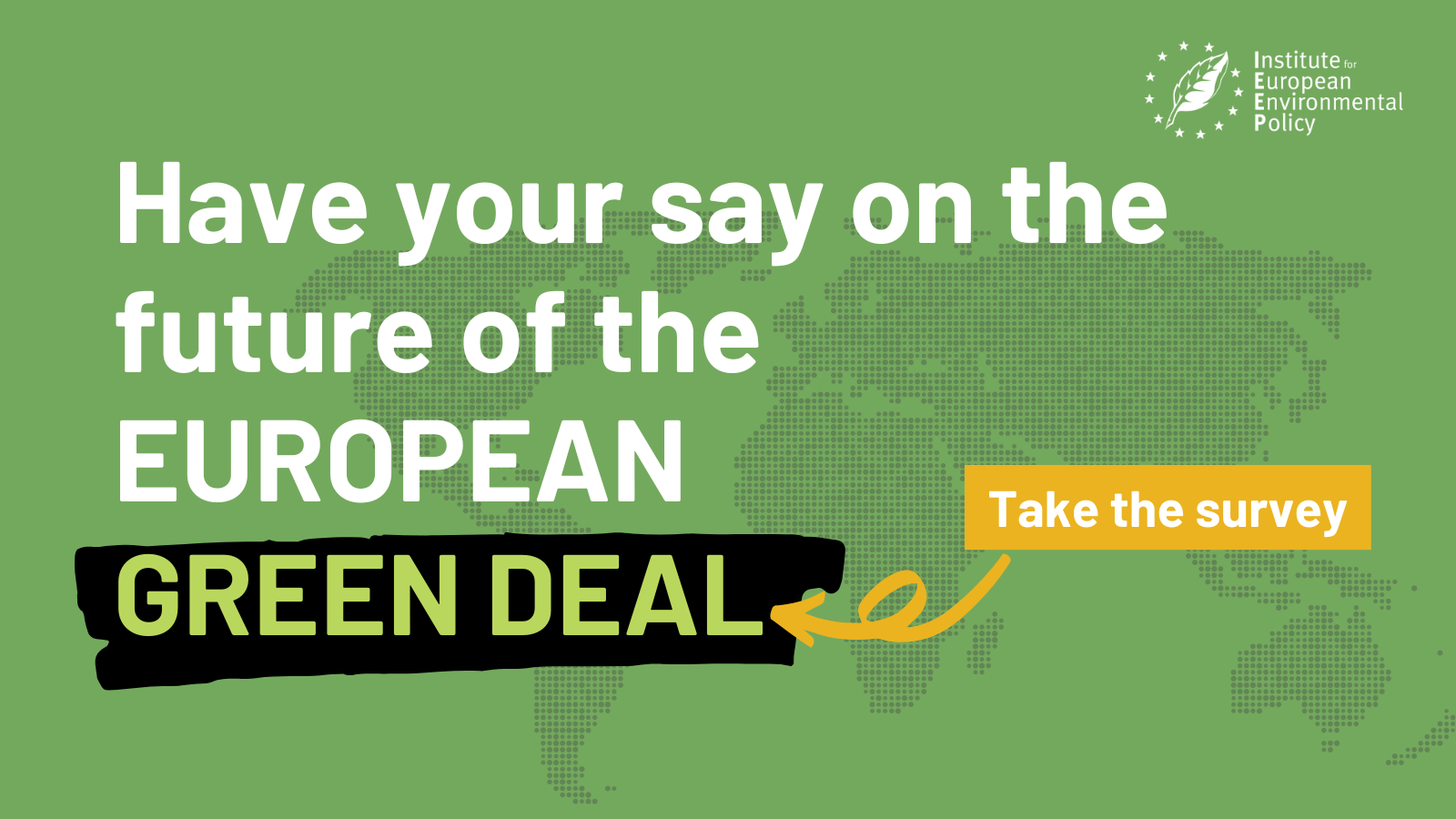IEEP has the overarching goal to contribute to ensuring that Europe’s post-2020 agenda will bring greater environmental sustainability to the continent, in line with science and Europe’s international commitments, including the Sustainable Development Goals and Multilateral Environmental Agreements.
Exploiting our unique position at the interface of policy, science and society, IEEP is committed to ground-breaking research, and engagement with policy-makers, sustainability think tanks, businesses, civil society and the media across Europe, to help inform the priorities of the political debate.
IEEP works with a range of policymakers, from local to European level, NGOs and the private sector, to make that happen and provide evidence-based policy research, analysis and advice. Our work is independent and informed by a diverse set of views. As a charitable organisation with an educational mandate, we ensure all our work contributes to advancing knowledge and raising awareness; and to promoting evidence-based policy-making for greater sustainability in Europe.
IEEP operates under a Code of Ethics, which is applied to our staff, associates and the work we do with partners. Our code has the following guiding principles.
IMPACT: All work must aim to lead to concrete, positive and lasting impact to improve Europe’s environment and also beyond and must support IEEP’s strategic, charitable and not-for-profit objectives:
- Create better integration of the environment and sustainability into Europe’s post- 2020 agenda and strategy;
- Improve key sectoral environmental policies such as climate and energy, agriculture and biodiversity;
- Align Europe’s financial resources to environmental sustainability and Sustainable Development Goals (SDGs);
- Generate a positive imprint of Europe on the global environment and on environmental policy beyond its borders;
- Foster more effective environmental governance of the European Union.
SUSTAINABILITY: We adhere to the concept of sustainability as embedded within the SDGs. While our primary expertise is within the environmental field, we strive to include other dimensions of sustainability and the principle of universality in all our work. We have a sustainability and environmental policy for the operation of the Institute and our staff seek to adhere to this.
RESPONSIBLE RESEARCH AND INNOVATION: We adhere to the principles of responsible research and innovation and we work to implement them in the course of our research as outlined by the European Commission. EDUCATION: We contribute to the advancement of publicly accessible knowledge by disseminating the outcomes of our research through various channels (web, capacity building, social media). We also contribute to peer-reviewed publications and Massive Open Online Courses (MOOCs) and produce a free newsletter. IEEP aims at supporting fresh starters among researchers in the environmental sustainability field, through its internship programme.
EXCELLENCE: We strive for excellence when conducting research and aim to produce and disseminate work of the highest quality. We aim to ensure that our researchers have the necessary time, skills, training and resources to carry out research, in the proposed research team or through collaboration with specialists in relevant fields, and report and resolve any unmet needs identified.
HONESTY: We work to create and maintain a culture that fosters and supports honesty in our research and in other activities, such as our financial accounting. Our researchers are honest in relation to their own research and that of others. They do their utmost to ensure the accuracy of data and results, acknowledge the contributions of others, and neither engage in misconduct nor conceal it.
INDEPENDENCE: We will not provide results that do not represent what we honestly think. At times, this means turning down research projects when conditions for such independence are not met.
INTEGRITY AND IMPARTIALITY: We declare any potential or actual conflicts of interest relating to research and where necessary take steps to resolve them. For example, when facilitating discussions among stakeholders we maintain complete impartiality.
WELL-BEING: We show respect for our staff, our colleagues and those we work with. We support our staff in their work-life balance and their family life. We also support our staff through the provision of support processes including training.
COOPERATION: We promote the open exchange of ideas, research methods, data and results and their discussion, scrutiny and debate, subject to any considerations of confidentiality.
When working with partners and subcontractors, we adhere to the highest standards for collaboration. We also try, whenever possible, to build the capacity of our partners and other relevant stakeholders, with a view to improving the overall effectiveness and evidence-based knowledge across a range of sectors in Europe. For example, we host capacity-building workshops and events regularly.
ACCOUNTABILITY: We recognise that we are ultimately accountable to the general public and should act accordingly. We are transparent about our operations and conduct consultations with stakeholders in an ethical manner. IEEP is registered in the Transparency Registrar (no. 934329423960-72) and releases an annual report as well as statutory accounts which are publicly available on our website.
CONFIDENTIALITY: We are committed to ensuring that all confidential information from projects and partners are protected and kept confidential.
DATA COLLECTION AND RETENTION: We comply with all legal, ethical, funding body and organisational requirements for the collection, use and storage of data, especially personal data, where particular attention should be paid to the requirements of GDPR legislation (General Data Protection Regulations). Our approach to data retention is outlined in our privacy policy, and we maintain confidentiality where undertakings have been made to third parties or to protect intellectual property rights. We aim to ensure research data relating to publications is available for discussion with other researchers, subject to any existing agreements on confidentiality.



